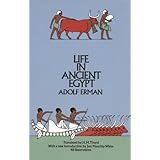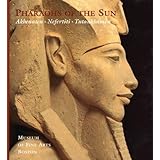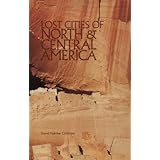
Average Reviews:

(More customer reviews)The wholesale looting of the Baghdad Museum on Apr. 11-12, which U.S. troops did nothing to prevent, has lent a fresh plangency and interest to this remarkable new book about history, culture, museums, caretakers, theft, corruption and the dogfights between the West and Islam over antiquities vastly older than either culture.
In two days in Baghdad, thousands of priceless treasures up to 5,000 years old have disappeared into the pockets and pickup trucks of larcenous mobs. However the Bush administration's Iraqi adventure is seen a century from now, the loss to human history and culture it occasioned is probably irreparable. Artifacts older than Abraham the patriarch have been stolen, ruinously dispersed, probably destined to be melted down for modern bangles. They will exist only in photographs, if at all, for the mobs destroyed the museum's archives as well, according to the New York Times.
Donald Malcolm Reid, a professor of history at Georgia State University, has assembled a very clear, comprehensive account of another, longer, more complex process of ruin, preservation and expropriation. In this sharply written, poignantly illustrated and lucidly organized book, Reid describes how Egyptian civilization was rediscovered by Europe after Napoleon invaded the place in the early 19th century, and how its treasures were first plundered, then exported, then preserved by Europeans who generally regarded the country as their own private piggy-bank. The living Egyptians they encountered were, in their eyes, little more than ignorant Muslim fanatics.
But they weren't. As Reid makes clear, a handful of enlightened Egyptian scholars were fascinated by the Pharaohs and were proud of their land's past. One, named Rifaa al-Tahtawi, wrote a history of ancient Egypt in Arabic in 1868 after studying the land and its monuments for nearly 35 years. Even earlier Abd al-Rahman al-Jabarti, another scholar, had warned of the dangers of a European invasion of Egypt when Napoleon arrived with his armies in 1798. His words could come from an Iraqi citizen interviewed on CNN today:
"This is the beginning of a period marked by great battles; serious results were suddenly produced in a frightening manner; miseries multiplied without end, the course of things was troubled, the common meaning of life was corrupted and destruction overtook it and the devastation was general."
Worse was to come. Napoleon brought with him a remarkable entourage of scholars headed by the brilliant libertine, Vivant Denon, and the result was the monumental "Description de L'Egypte," one of the most beautiful multi-volume works of art and science ever published, a work so gorgeous that collectors commissioned special bookcases decorated with gilt sphinxes to hold it, and nothing but it.
But the result of the Napoleonic expedition, and its "Description," was ruinous, as Reid makes clear. A kind of Egyptian gold-rush opened up within the conquered country, and British and German scholars and diplomats descended on Egypt like locusts, determined to rescue it from itself ' and take home as many antiquities as possible in the process. The Rosetta Stone was one of the earliest spoils of war, found by the French, captured by the British in 1801 and today in the British Museum in London. (Americans arrived too late: Not until 1924 did the University of Chicago set up a permanent bureau in Cairo.)
After the first rampage of looting ' perhaps because the antiquities were so infernally heavy to transport, perhaps because the Europeans thought they'd be occupying Egypt in perpetuity ' another, subtler form of sequestration followed. The French Egyptologist, Auguste Mariette, decided it might be a good idea to set up a museum of antiquities in Egypt itself. It is the ancestor of the modern Cairo Museum, but Mariette was opposed to letting native Egyptians inside:
"Egypt is still too young in the new life which she has just received to have a public easily impressed in matters of archeology and art," he explained.
This is one of many ironies that enliven Reid's text, and this book can be read on several levels, as a history of archeology, of politics and warfare, of culture, of prejudices and superstitions, both Egyptian and European, Western and Islamic.
Reid tells it all very clearly, and unflinchingly. Egyptians were finally allowed into their museum in 1915 and could get in free on Tuesdays. Some rubbed up against the antiquities "as a cure for various ills," and the Baedeker guide counseled European visitors to avoid the museum on Tuesdays when "Arab visitors of the lower classes" flocked in.
Some very famous Egyptologists, among them E. A. Wallis Budge and Gaston Maspero, emerge from Reid's pages in all their roguish glory, as brilliant thieves and snobs. Maspero's 13-volume "History of Egypt" now fetches fancy prices on abebooks.com and Budge's treatises ancient Egyptian religion are available in Dover paperback reprints. Reid exposes their thefts and prejudices very artfully.
This is above all a magnanimous book, an attempt at making restitution in ink for what has been stolen in stone. It is hard not to sympathize as Reid quotes the Egyptian scholar Ali Mubarak, who issued a huge 20-volume topographical encyclopedia of Egypt in 1887, with this humble, honest preface, expressing Arab humanism at its best:
"We look upon these works but do not know the circumstances of their creation, we wander through them but do not know who made them... But it is our duty to know these things, for it is not fitting for us to remain in ignorance of our country or neglect the monuments of our ancestors. They are a moral lesson to the reflective mind, a memorial to the thoughtful soul...
"For what our ancestors have left behind stirs in us the desire to follow in their footsteps, and to produce for our times what they produced for theirs; to strive to be useful even as they strove."
Click Here to see more reviews about:
Whose Pharaohs: Archaeology, Museums, and Egyptian National Identity from Napoleon to World War I Get 5% OFF
Get 5% OFF
Click here for more information about Whose Pharaohs: Archaeology, Museums, and Egyptian National Identity from Napoleon to World War I






















